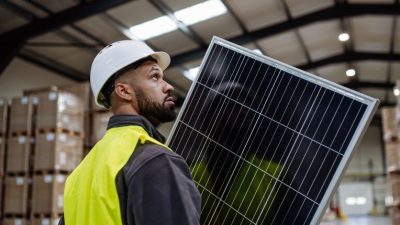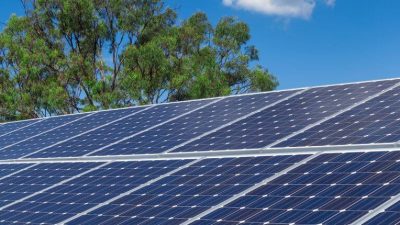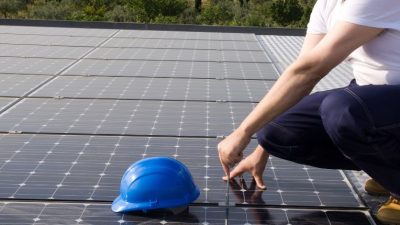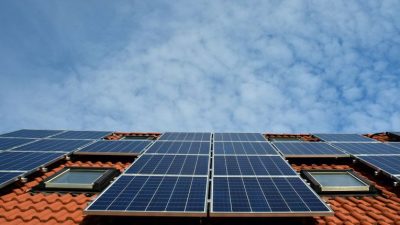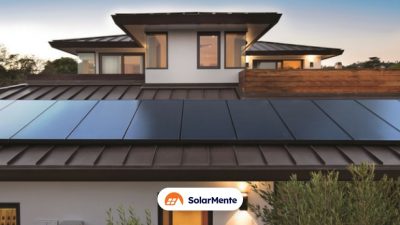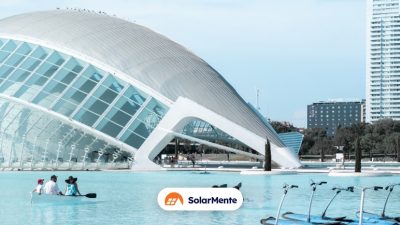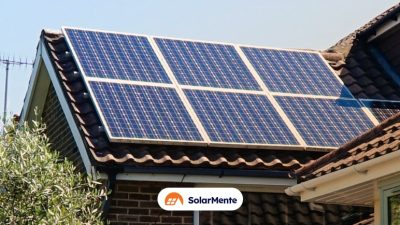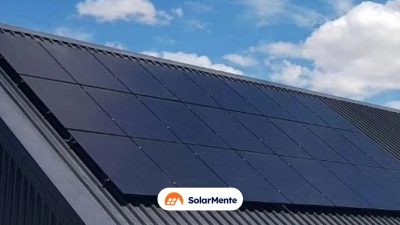In a world where sustainability is more crucial than ever, solar energy is emerging as one of the most promising and affordable solutions to today’s environmental and energy challenges.
This type of clean, renewable energy harnesses the power of the sun, an inexhaustible source, to generate electricity and heat, marking a significant contrast to the fossil fuels that dominate our energy matrix and are major contributors to global climate change.
Solar energy is not only vital for reducing our dependence on non-renewable resources, but it also offers local energy autonomy, encouraging the development of technologies that can be implemented almost anywhere in the world.
Throughout this post, we will explore how solar energy works, its benefits, and why more and more people and companies are investing in this revolutionary technology. Dive into the fascinating world of solar energy and discover how it can transform the way we consume energy while respecting our planet.
What is solar energy?
Solar power is the technology used to capture sunlight and convert it into electricity. It works through the use of solar panels, which contain photovoltaic cells. These cells are able to convert photons (particles of light) into electrical energy through a process known as the photovoltaic effect.
Each solar panel is composed of numerous cells that work together to produce energy in a meaningful way.
Apart from electricity generation, solar energy can also be used to produce heat. Solar thermal systems capture heat from the sun directly to heat water or air for residential or industrial use, offering an efficient alternative for heating and hot water production.
Advantages of solar energy
The adoption of solar energy brings with it numerous economic, environmental and social benefits:
Economic:
- Reduced electricity costs: Once installed, solar panels generate electricity at a very low marginal cost. For many, this translates into a substantial decrease in electricity bills.
- Increased property values: Homes equipped with solar energy systems often experience an increase in market value.
- Tax incentives and subsidies: In many countries, solar system owners can benefit from government incentives that significantly reduce the initial cost.
Environmental:
- Reduced greenhouse gas emissions: By generating clean, renewable energy, solar systems reduce dependence on fossil fuels, thus contributing to the fight against climate change.
- Efficient use of land: Solar panels can be installed on roofs and unused areas, optimising space without affecting land use.
Social:
- Job creation: The solar industry is growing rapidly, leading to job creation in sectors such as manufacturing, installation and maintenance of solar systems.
- Energy autonomy: Solar systems enable communities in remote or island areas to generate their own energy, reducing dependence on centralised electricity grids and improving their self-sufficiency.
These advantages position solar energy as an increasingly attractive and necessary option on the global energy scene, not only for its economic and environmental benefits, but also for its contribution to social and technological development.
How does solar energy work?
Solar energy is obtained thanks to the sun’s rays that reach our planet, i.e. thanks to the electromagnetic radiation emitted by the sun and radiated by our atmosphere.
Thermal (heat) and luminous (light) energy is obtained from this radiation, from which electrical, heat, thermodynamic, etc. energy can be generated using different techniques.
This translates into the energy needed to generate hot water, heating, electricity, vehicle movement, etc. In addition, it has the added advantage that, being a renewable energy, it is a cleaner and less polluting alternative to other energies such as fossil fuels, for example.
What are the social benefits of solar energy?
Solar energy not only offers economic and environmental advantages, but also significant social benefits:
- Access to energy in remote communities: Solar energy can be installed in isolated communities where grid connection is unfeasible or too costly. This allows access to electricity essential for education, health and communication.
- Empowering local communities: By adopting solar energy solutions, local communities can manage their resources independently, fostering greater autonomy and economic development.
- Education and training: The growing solar energy sector requires skilled professionals, creating opportunities for training and employment in new technologies, which especially benefits young people.
- Disaster resilience: In areas prone to natural disasters, solar energy systems can provide a vital source of electricity during and after catastrophic events, helping communities recover more quickly.
- Improved public health: Energy generated from solar panels emits very little air pollution, making it a cleaner source of energy than burning fossil fuels.
- More sustainable cities and areas. Sites using solar energy enjoy cleaner air quality in the region.
- Sustainable development. Solar energy is available almost everywhere on the planet. Therefore, the production of electrical energy through photovoltaic panels contributes to sustainable development.
These benefits demonstrate that solar energy has the potential not only to transform our energy matrix, but also to significantly improve living conditions and social development on a global scale.
RELATED QUESTIONS
How do seasonal changes affect solar energy?
- In spring: the sun is rising in the sky and each day is longer than the last. Solar output is increasing.
- In summer: the sun is high, the days are long. Solar production is at its peak.
- In autumn: the sun withdraws and each day is a little shorter than the previous one. Solar output is falling.
- In winter: the sun is low and the days are short. Solar production is limited.
Does energy production depend on the weather or the number of hours of sunshine per year?
Does energy production depend on the weather or the number of hours of sunshine per year?
Solar energy systems work well in cold, foggy or cloudy weather.
Waves and particles of sunlight continuously strike the surface of the planet. Thus, the solar panels collect the energy through the cloudy filter. It may be at a slower rate, but cloudy days will not negatively affect energy generation.
Why switch to solar energy?
For savings on electricity bills:
Self-consumption allows savings in energy consumption, in the variable term of the electricity bill. With solar self-consumption it is possible to save up to 65% of the electricity bill, which means an average of 600 euros per year.
For environmental protection reasons:
Given the growing concern about climate change and environmental protection measures, more than 66% of respondents would be quite willing (35.6%) or very willing (27.8%) to install a self-consumption system in their residence – using solar technology in this case – or have already done so (2.7%) as a citizen action measure to combat climate change.
Renewable energies and self-consumption in particular reduce the environmental impact. Thus, each kWh produced by solar technology frees you from approximately 0.31 kg of carbon dioxide, reducing this impact.
Is solar energy cheap?
What’s more, solar energy is officially the cheapest electricity in history according to the World Energy Outlook 2020 (WEO) report of the International Energy Agency (IEA).
Going solar is not only an economically and environmentally smart decision, but also a commitment to the future of the planet and the next generations. While switching from one energy source to another may seem challenging, the long-term benefits and immediate improvements in sustainability and energy costs are invaluable.
Contact us today and switch to a solar subscription. Our team of experts is ready to help you make the transition to cleaner, more efficient and affordable energy. Find out how solar can not only lower your electricity costs, but also increase the value of your property and contribute to a more sustainable world.



